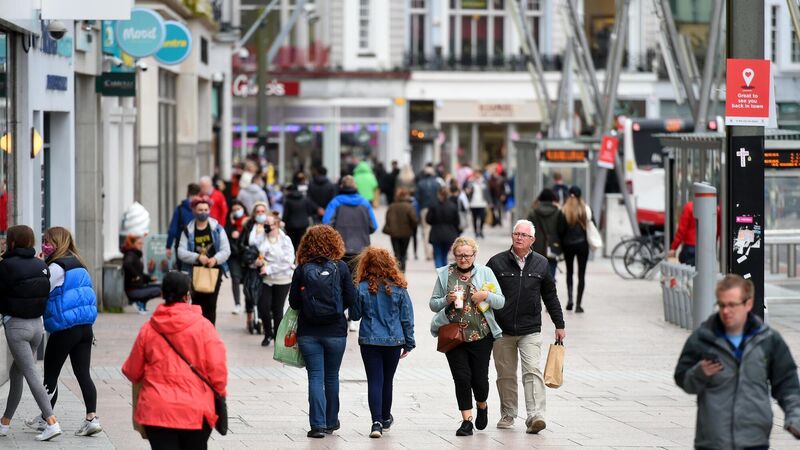Government slammed over 'poorly founded' budget planning

The new report, Looking Beyond Covid-19, warns about extra spending during the pandemic becoming locked in — but also airs optimism about the prospect of a strong post-Covid economic recovery. Picture: Larry Cummins
The Irish Fiscal Advisory Council (Ifac) has slammed the Government over "poorly founded" budget planning, warning that any new spending increases will likely need to come out of higher taxes or from spending cuts.
In its latest fiscal report, Looking Beyond Covid-19, the fiscal council has warned that €5bn in increased spending may have been permanently locked in during the Covid crisis, and that much of the tax revenue bounty from the economic upswing in the next few years has already been spoken for.
The report is a judgement call on the economic forecasts published by the Department of Finance last month and reflects a growing exasperation over the way the Government goes about planning its budgets for future years.
The fiscal council said the Government is basing its big spending plans up to 2025 — including an overhaul of the creaking Irish health system — on incomplete planning and on revenue sources that cannot be relied on.
Nonetheless, it also has good news on the prospects for a strong economic recovery after Covid.
It believes the Department of Finance is somewhat too pessimistic about the scale of the economic bounce back, and more or less agrees with the department that the fruits of economic growth will mean the annual budget deficit will have closed by 2025. That opens up the chance of reducing the national debt burden built up during the Covid emergency.
The State's gross debt burden will fall to the still-elevated level of around 100% of modified gross national income in 2025, according to the forecasts.
However, Ifac warned new permanent spending measures will need to be funded by tax hikes or by cuts in other programmes, while "large permanent increases in Budget 2021 have already committed gains from future growth".
"The Government has failed to deliver a credible medium-term strategy" despite it facing huge demands from an ageing population and climate change, while becoming more reliant on the corporation tax receipts of a handful of multinationals, it said.
The fiscal report echoes the concerns of other reports, including the Economic and Social Research Institute, which last week set out the extra billions in tax the State will need to tap to meet its spending and investment commitments for health reforms, building, and retrofitting homes for climate change, and investing billions in infrastructure.
Meanwhile, there was a large fall in the number requiring the pandemic unemployment payment, or PUP, this week, as hairdressers and some retail staff got back to work for the first time in almost five months, the latest figures show.
The Department of Social Protection said there were 334,000 people on the PUP, down by 29,000 from last week.





